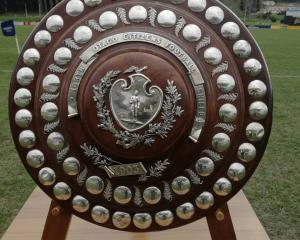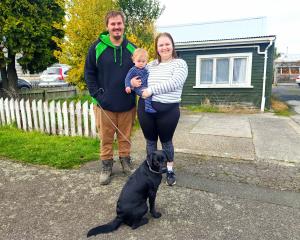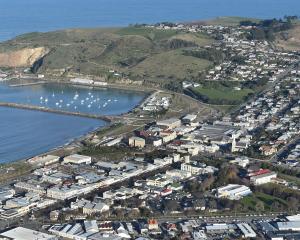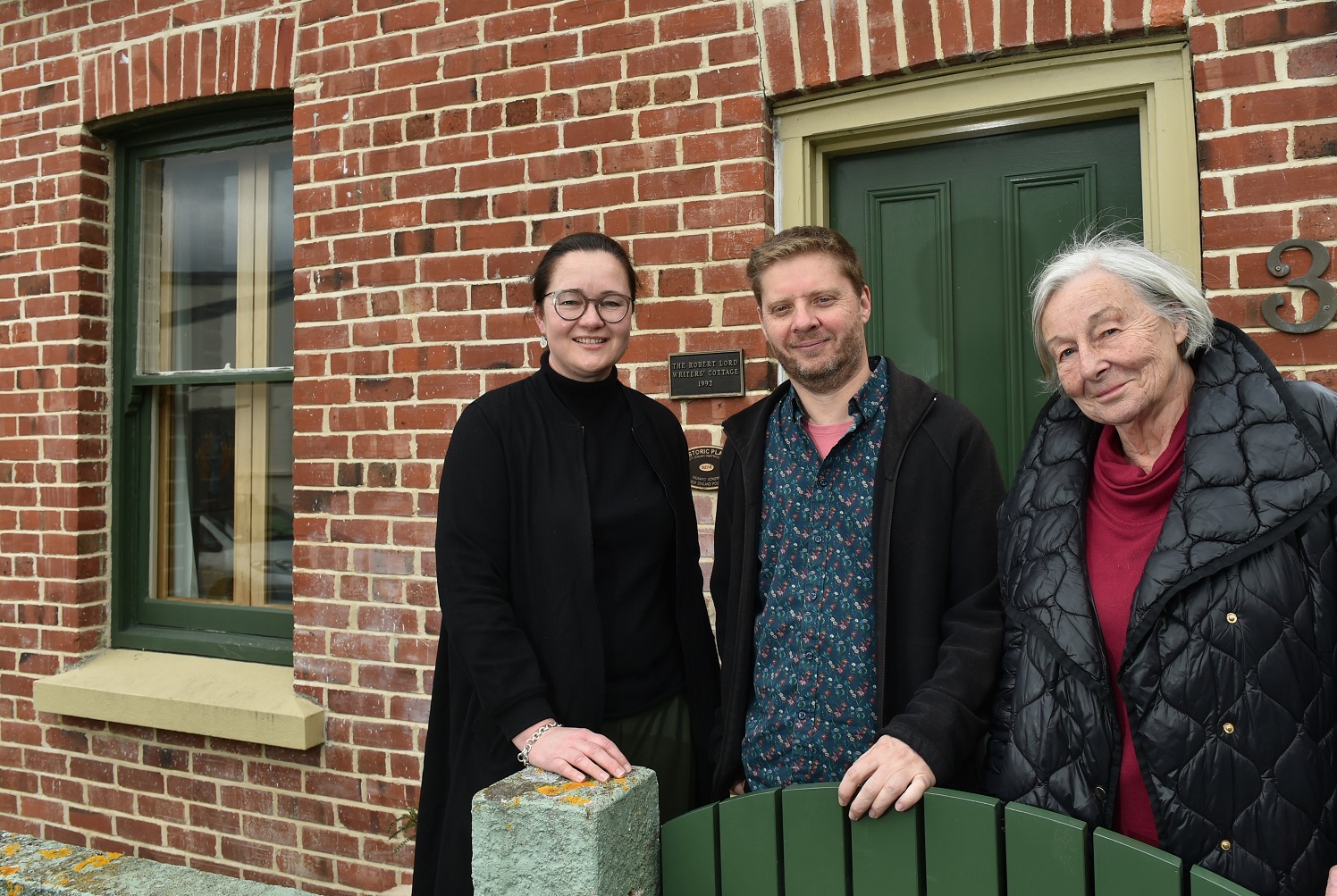

Yet his diaries tell a different story.
He regularly took himself to task, questioning his abilities.
"I’m in such a state of depression. Don’t know what to do about it. Feel isolated, miserable and a failure. It seems as if I should be facing up to a realisation that I have no talent and shouldn’t be pretending to do what I do," he wrote in 1988.
For friend and Robert Lord Writers Cottage Trust chairwoman Nonnita Rees this is quite curious as she never heard him talk that way. Others describe him as "wickedly fun" or talk of his constant humour.
"It shows the other way people see you is not always the same as we see ourselves."
It is just one of the insights the Robert Lord Diaries offer into the life of Lord who wrote more than 20 plays for radio and stage as well as multiple episodes of television series and dialogue for several films and screenplays. The diaries cover 17 years from his first trip to the United States in 1974 to a final entry in 1991, less than a year before his death, aged 46, although there are many gaps when he did not write.
"They are intensely personal," Rees says.
While the public had access to the papers and play notes he donated to the Hocken Library, his diaries, entrusted with the trust after his death in 1992, have not before been available to the public .
Rees, who co-founded Playmarket, a New Zealand playwright agency and publisher, with Lord in the 1970s, says the trust had a number of inquiries about access so it knew the time was coming to make the diaries available. It was also getting to the stage when many of Lord’s friends and contemporaries were dying.
"The trust decided that if it published the diaries in their entirety it would be possible for Robert’s own voice [to] be heard and people will have access to that for scholarly study."
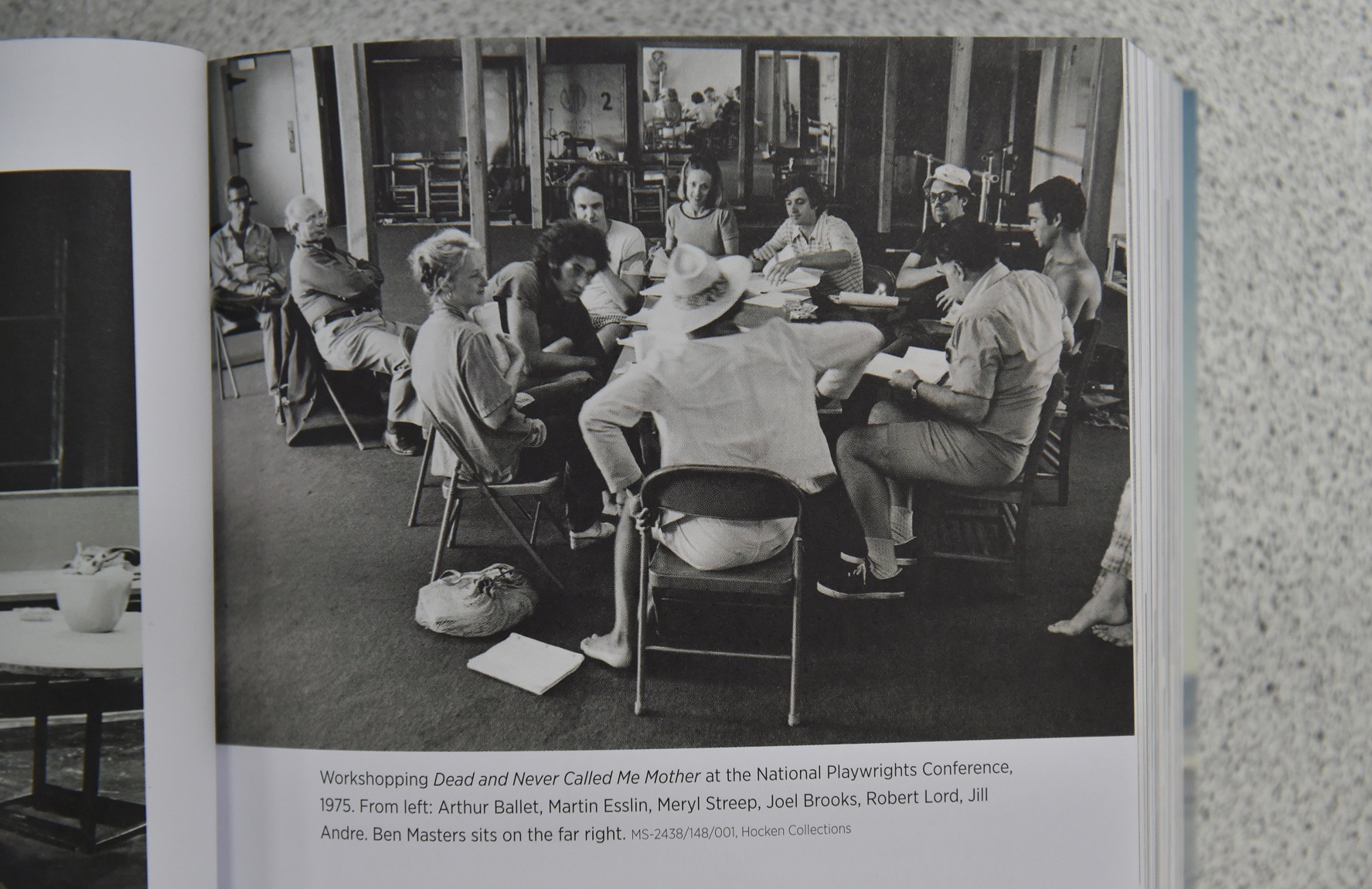
"I really liked what he [Brickell] did with the James Courage Diaries," Rees said.
For Brickell the project fitted well with his work on Courage, a New Zealand author born in Christchurch in 1903, who left 400,000 words of private diary entries including his time in London.
"They were both New Zealand expat gay playwrights who wrote a lot about New Zealand while not living here and about New Zealand culture and society from the vantage point of New York in the case of Robert and London in the case of James Courage."
Alongside the diaries was a full set of play scripts and an amazing collection of photographs, posters and family photos which enabled them to illustrate Lord’s life.
"We wanted to illustrate his personal and creative life and what drove him personally."
Lord, who was born in Rotorua, studied at the University of Otago (although finished his degree at Victoria University) and returned to Dunedin as the Robert Burns Fellow in 1987, the same year he bought his first house, an old railway workers cottage in Titan St Dunedin.
He described it as "the smallest house in the southern hemisphere if not the world".
"Though I don’t think I’m mad I have a feeling everyone else will. Don’t want mum to freak out when she arrives and sees I’m living in a rather large dog kennel," Lord said.
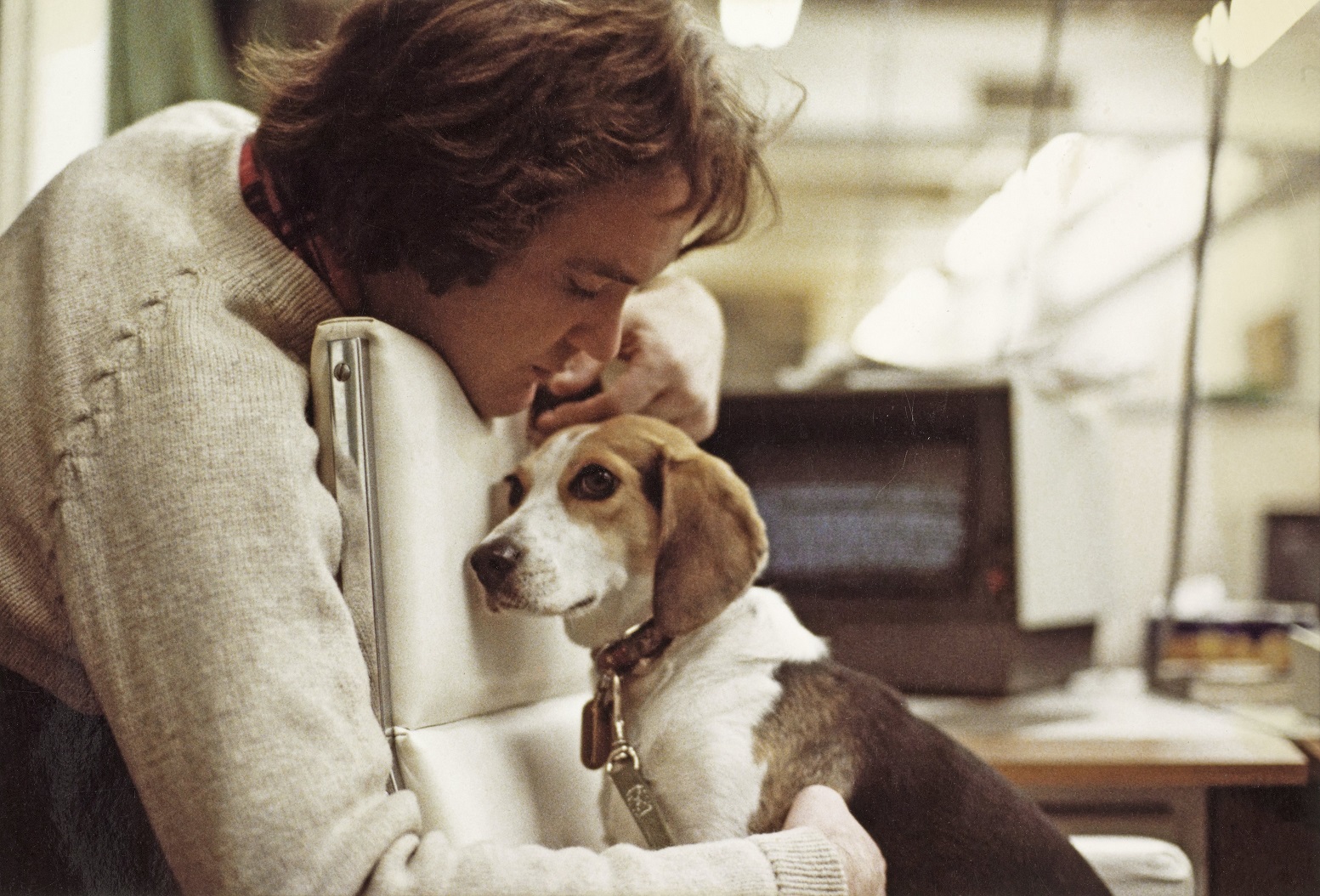
Lord set his play The Affair in Dunedin with familiar places such as the Robbie Burns and Captain Cook pubs, Governor’s Cafe and Centre City New World included and also wrote Joyful and Triumphant while in the city.
The diaries concentrate mostly on his play writing, his struggles and frustrations as he tried to establish a career in the industry and write and finish manuscripts such as Well Hung, Bert and Maisy and China Wars.
Brickell says Lord was an experimental writer who tried all sorts of different writing including for television and film.
"He was a quirky playwright, who had a bit of thing for killings, shootings and erotic ambiguities."

"He was a pioneering New Zealand playwright and, as someone writing about queer themes in plays, set the agenda in more ways than one."
Lord spent many years in New York in the late 1970s and 1980s. He first visited on a Queen Elizabeth II Arts Council grant in 1974 and then a year later returned to New York where he went on to have works programmed by major off-Broadway and regional American repertory companies.
It was on that first visit that he began his diary describing the theatre in a Connecticut town, the people he met and the dress rehearsal he went to.
The diaries talk of living in New York with his beagle, Becky, partying with Broadway and ballet stars — and David Bowie — while Kevin Bacon took part in a staged reading of one of his plays. Meryl Streep, Christopher Lloyd and Jill Eikenberry acted in his plays.
"The message of this is to stay out of rock clubs. Anyway met Iggy Pop," a diary entry says.
Lord also writes of the Aids epidemic in the 1980s calling it the "gay cancer", worrying if it might lead to a backlash against gay men.
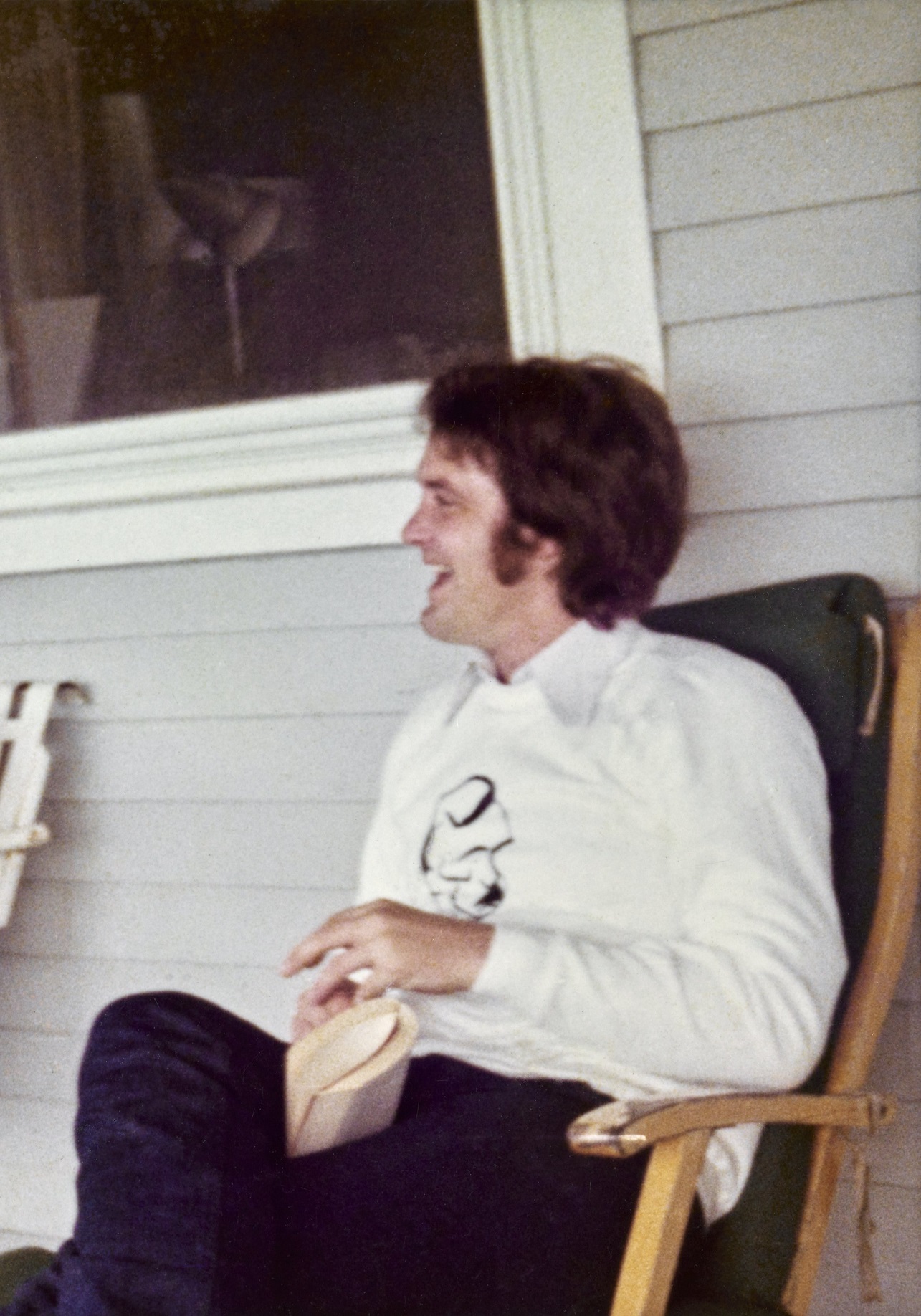
For Rees, Lord’s impressions on Aids, its effects on his friends and social life and the public discussion about it in New York contrasted with New Zealand where it was not talked about at all, even by Lord when he came home.
"The dairies are the only place he talked about it."
It was while in New York in 1989 that Lord went to see doctors and was prescribed medication for Aids-related symptoms.
Brickell says life in New York contrasted greatly with his life in New Zealand and Lord was acutely aware of that.
"While it seems I was never away I am very aware of my cultural schizophrenia. This present reality, so different from New Zealand, seems all I have ever known and yet I know that is not so," Lord says in 1988.
On the plane home to New Zealand he talks about recalibrating himself for life in New Zealand where his relatives all want to get a look at him and talk about Ronald Reagan.
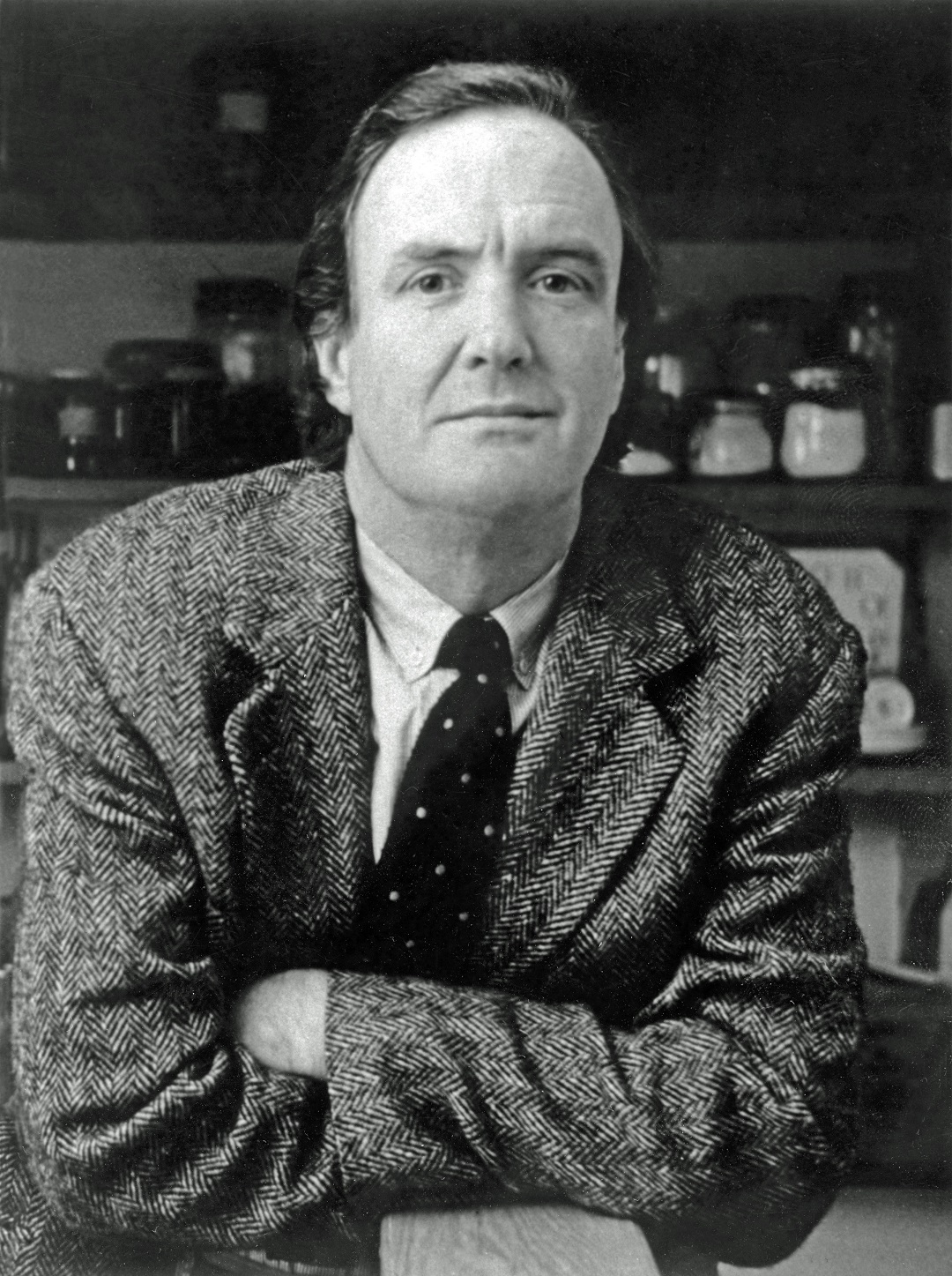
He toured the South Island and loved the scenery. One trip he took with his parents and describes how he comes from a conservative family yet he is by nature bohemian.
"For a large part, he was hiding his sexuality, he would have dressed differently, talked differently, eaten differently," Brickell says.
The diaries show how important Lord’s friends were to him and later in his life his family as well. He liked to entertain and host people in his home.
"There is a really human quality to his friendships. He became entangled in intense relationships with people."
Lord was also an early adopter of technology with his move to writing on a computer and its associated foibles detailed.
"It occurs to me that it is only about two years since I got my first computer (the Atari) and was totally bewildered," he says in 1988.
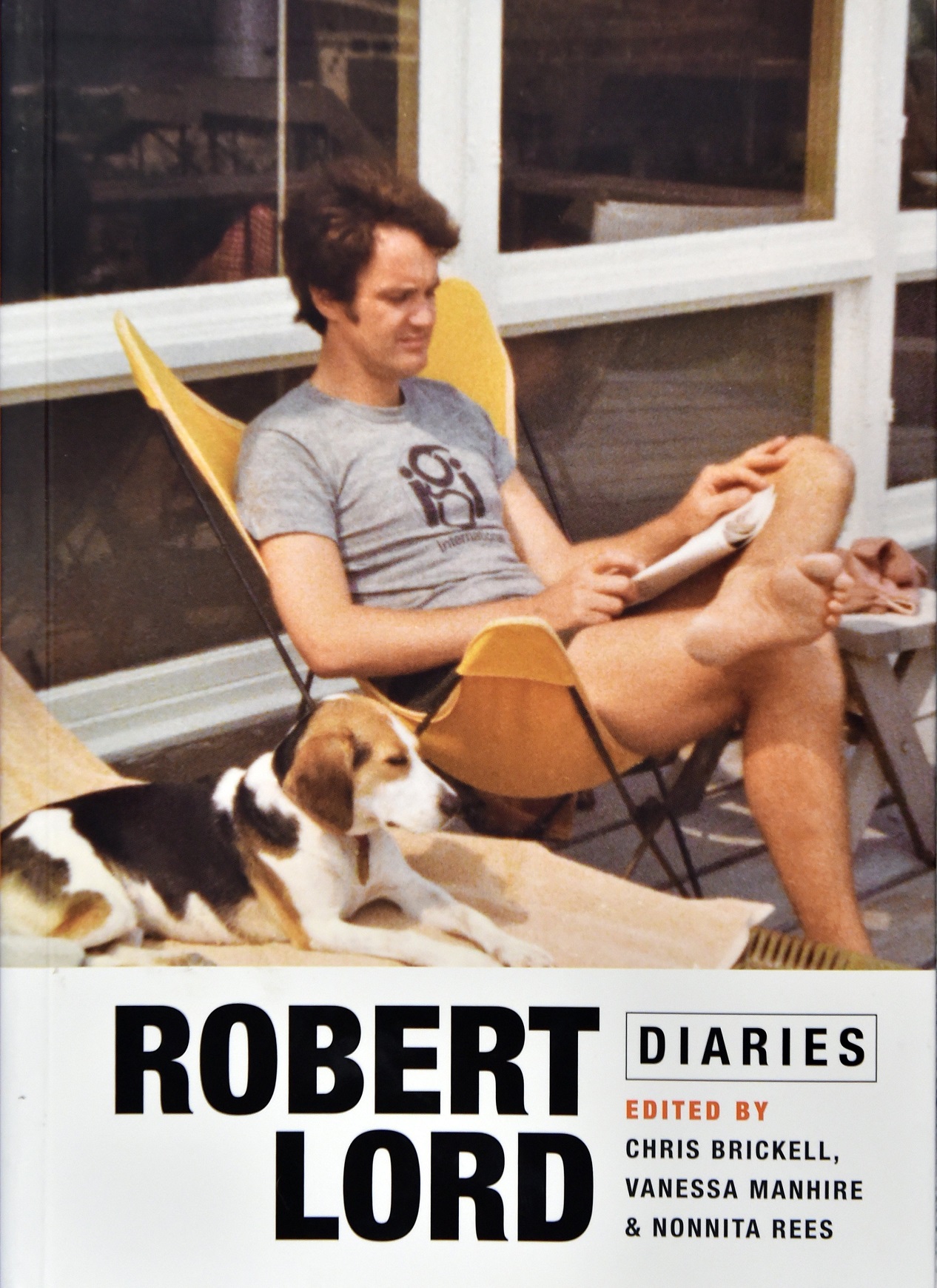
"It adds a lot of colour to all of that and is a subtle history of the theatre over that period."
One of the biggest jobs of the project was to identify all the people Lord referred to in his diaries and others in photographs with him. Who they were and their relationships were then footnoted in the book painting another picture of the theatre worlds in both New York and New Zealand.
They shared in each other’s small victories when another piece of the puzzle came together.
"It was a fluid process like nailing water to a wall."
Manhire became obsessed with finding out the identity of "Clams" who was only referred to as that in the diaries. She later discovered his real name was Keith Edmondson. She searched out many of his friends from his days in New York who provided more information and photographs.
"Most were really pleased he was being remembered."
They also shared extracts with people mentioned in the diaries to ensure they were OK with it being published. If it included sensitive or private information pseudonyms were used.
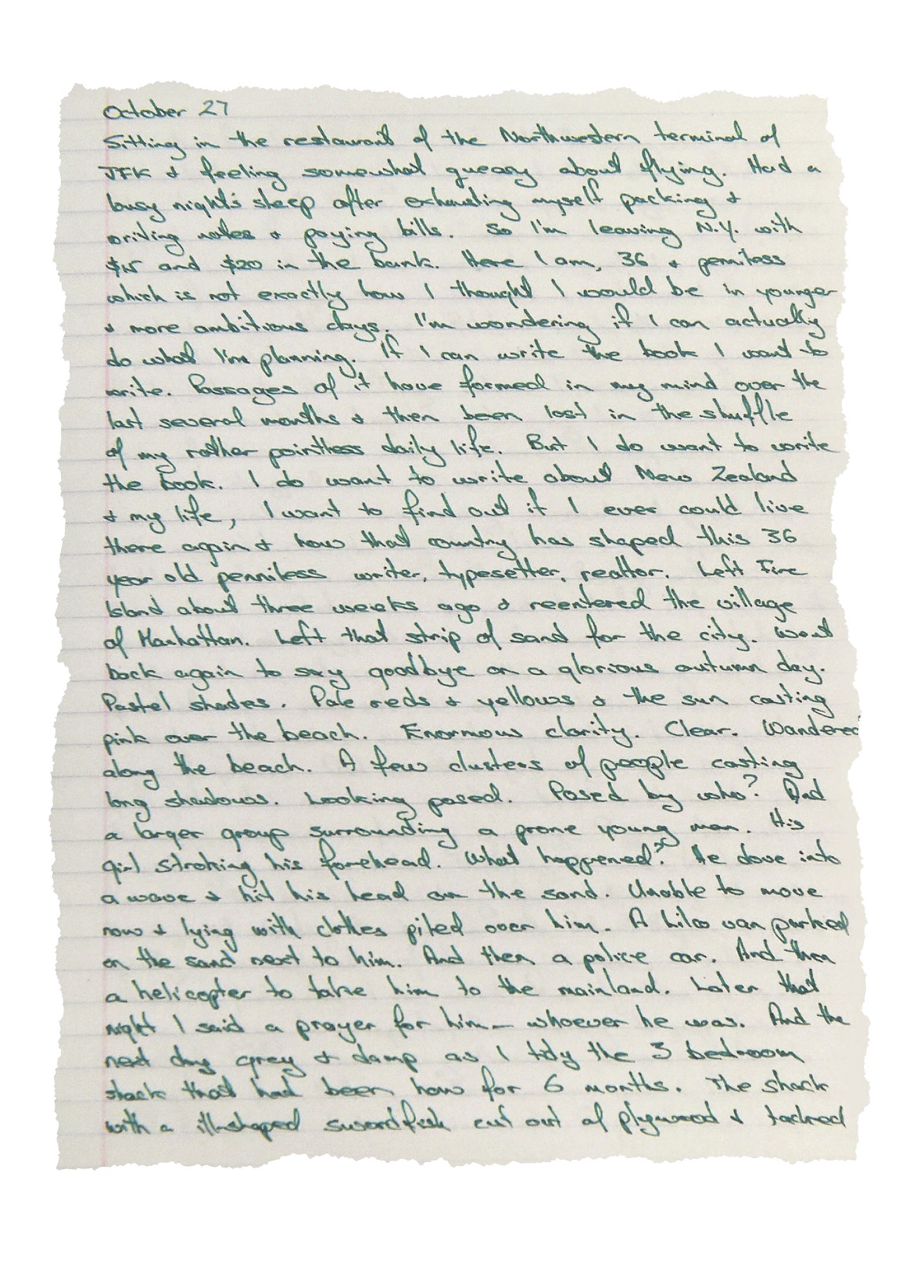
He talked about his wish for the residency to be created to Rees during his last days in hospital. Rees admits to not being overly enthusiastic about the idea.
"We were like ‘for God’s sake Robert do you know what that involves? It never works, you’ve got to have someone to run it’. But he was like ‘it will work’ and here we are 30 years later. He made us all do it."
After his death Lord wanted his royalties and rent from the house to go to his mother and then upon her death become a residency. But his mother decided after a few years that she wanted to see the residency happen in her lifetime and forwent the royalties and rent. Then upon her death left some funds to the trust.
"She was very loyal to Robert. Every time a play was put on she wanted to go. She visited him in New York and she followed everything very closely."
As a result more than 100 writers from all over the world and New Zealand have stayed at Titan St while on writers’ residencies.
TO SEE
Robert Lord Cottage open day, 3 Titan St, Dunedin, Sunday, October 15, 1pm- 4pm, Ōtepoti Dunedin Heritage Festival







